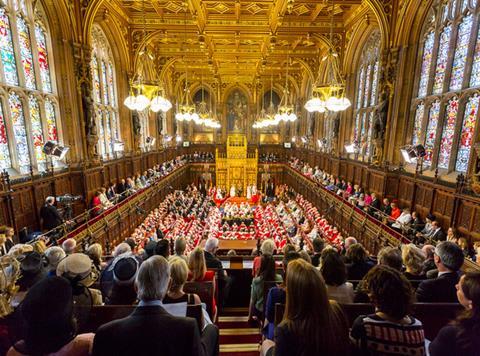
The delivery of Brexit dominated the Queen’s Speech today, with eight of the 27 bills detailing the UK’s departure from the European Union. Here’s how key players in the food and drink industry reacted to the news.
Association of Convenience Stores
The ACS is calling on the Government to make sure the changes to energy market, which promise fairer energy bills for consumers, also apply to non domestic consumers.
“ACS has long campaigned for a fairer energy market for small businesses,” said ACS chief executive James Lowman.
“We will continue to work with Government officials and the energy regulator Ofgem to ensure that local shops and other small businesses are afforded the same protections as everyday consumers, and are not forced into expensive energy contracts with unfavourable terms.”
The ACS has campaigned for a ban on rollover contracts, a mandatory 12-month limit on backdated bills, tighter regulations to stop energy brokers from mis-selling and the same protections for local shops other small businesses as provided to consumers.
In response to the government commitment to raising the National Living Wage “so that people who are on the lowest pat benefit from the same improvements as higher paid workers,” the ACS said that its latest research shows that more retailers have reported that they are cutting staff hours than last quarter after the National Living Wage was raised to £7.50 per hour in April.
BBPA
Chief executive of the British Beer & Pub Association Brigid Simmonds said, ”As the Brexit bills proceed, we will certainly be making clear our priorities; robust transitional arrangements, trading as freely as possible with frictionless customs arrangements, and future access to the skills we need with the rights of our existing employees swiftly safeguarded.”
“We will of course continue to campaign for our other key priorities, not least a more competitive tax regime for the future.”
CBI
CBI director general Carolyn Fairbairn said that although the Government appears to have “warmed” it’s view on business, it must act quickly on Brexit.
”It’s good to see that the recent heatwave has warmed the Government’s view of business and its contribution to people’s lives. But this welcome change in tone needs to be backed by clarity and action now,” said Fairbairn. Firms will expect all politicians to put pragmatism before politics, starting with Brexit. Fast action on Industrial Strategy, skills and infrastructure will show that the UK is a great place to do business. But now it’s all about pace.”
Dairy UK
Dairy UK said the government must ensure trading arrangements with the EU without tariff and non-tariff barriers are continued, the relationship with the EU is clarified before negotiating free trade agreements with third countries, there is continued access to skilled and unskilled labour, any review of existing regulations or the introduction of new regulations will not create non-tariff barriers and UK farmers are not disadvantaged compared to their European neighours.
“Uncertainties around Brexit will be a problem for businesses in all sectors in the UK and the EU until negotiations take shape and the dairy industry in Europe is highly interlinked. We need transition and we need engagement,” said Dairy UK chairman David Dobbin .
”We have a strong ambition to provide world class products and play a positive role in the economy, environment, nutrition and social aspects of UK life. Dairy products are found in 98% of UK homes and there are 80,000 people who work in the industry – it’s their dedication and the support of the public that makes our industry vitally important to the UK. We are a key part of the nutritional fabric of the country.”
Fairtrade Foundation
The Fairtrade Foundation has called on international trade secretary Dr Liam Fox to take the new Trade Bill as an opportunity to ensure positive changes for poorer developing countries.
“This is a further step towards the UK making independent decisions on trade with the rest of the world,” said Fairtrade Foundation head of policy Tim Aldred.
“The UK can set an example to other rich countries by making it easier for poor countries to trade their way out of poverty. But it could go the other way: without the right guarantees, 47% of developing country imports face additional tariffs and those costs could push millions of vulnerable farmers into poverty.”
The Fairtrade Foundation said that 116 of the poorest countries could pay £1bn in extra taxes to import to the UK if the new trade policy does not include the same exemptions as ensured by the EU.
“The public care about this – ahead of the election more than 38,000 people called on the UK government to change trade for good - we want the government to put the farmers and workers in developing countries who grow our food first, and commit to trade deals which are truly fair,” said Aldred.
“We’d also like Parliament to start scrutinising future trade deals to make sure they are fair to developing countries.”
Farmers’ Union Of Wales
The union has “cautiously welcomed” the Agriculture Bill but said the devil would be in the detail and officials are now looking forward to discussing the next steps and contributing to its development.
“It was a key demand in our manifesto and the the FUW had called on the government to fully assess the implications of repealing, amending or devolving legislation in light of developments such as trade negotiations,” said FUW president Glyn Roberts.
”We also called on the government to identify those changes, which can be made without compromising our ability to access EU and other markets. Where necessary due to time constraints, the Union argued that it was essential to transpose overarching EU legislative frameworks en bloc in a way which maintains balances of power between devolved administrations and the UK government and Parliament, while committing to reviewing such frameworks post-Brexit.”
Food and Drink Federation
“Today’s Queen’s Speech lays bare the sheer scale of the challenge facing the Government and Parliament,” said FDF director general Ian Wright.
”As we seek to negotiate a new relationship with the EU within just 22 months, securing the right outcome for our food and drink industry is critical to both national security and to the prosperity of our economy. We are ready to seize new opportunities, but our trading and regulatory ties with the EU are deeply interwoven and must be dismantled with care. We cannot afford any ‘cliff edge’ scenario.”
Wright also expressed concerns that the bills announced today are implemented with businesses in mind and parliament “cannot afford to get it wrong,”
“It is imperative that parliamentarians remain focused on securing the right outcomes and do not get side-tracked,” said Wright.
“We are looking for four key outcomes – access to our valued EU workforce, a stable regulatory regime, zero-tariff and frictionless trade across borders and recognition of Ireland’s special circumstances. Food and drink is central to the negotiations and must not be pushed aside. An industrial strategy sector deal for food and drink and focused export support will allow us to maximise our industry’s growth potential and boost productivity levels.
“We need certainty that the current legislative framework that underpins our sector’s success – and food safety - will be embedded in UK law by April 2019. At the same time, we need to start designing interim or transitional arrangements that will apply from April 2019 until any new framework applies.”
Freight Transport Association
The FTA described the speech as a “missed opportunity for reform” of the Operator Licensing system which governs commercial vehicle operations in the UK.
“The Traffic Commissioners are telling us that a lack of reform of this legislation is the key barrier to improving license processing times,” said FTA head of licensing policy James Firth.
“The system has failed to keep pace with the dynamic nature of the logistics industry and is now stifling progress and growth. Our members have customers waiting but their business is paralysed until the license is granted.”
Institute of Economic Affairs
Director general of the IoEA Mark Littlewood said, “The Government’s action doesn’t match up to their rhetoric. While the Queen’s speech promised fiscal responsibility, the Government’s track record to close the budget deficit is woeful. And talk of delivering hugely expensive projects like HS2 somewhat jars with this promise – public spending should be reduced where possible, not spent on vanity projects that make no economic sense.”
“There is also cause for concern about certain manifesto promises that were not included. But further state interventions in labour and energy markets, including a price cap, are still in play and would do more harm than good to both businesses and consumers.
NFU
The National Farmers Union has welcomed the new Agriculture Bill and said it will “shape the future of our industry”.
“This is a vital time to engage with the farming sector,” said NFU president Meurig Raymond.
“Carving out a new future for the farming sector is a huge opportunity for the wealth and wellbeing of the nation. We can further our substantial economic, social and environmental contribution and, with that, strengthen the nation’s ability to feed itself and the world.”
At a glance: the key bills for food and drink
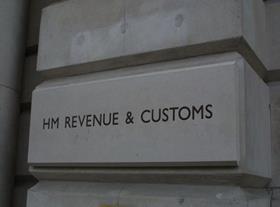
Customs Bill
To “secure the best possible deal as the country leaves the European Union”, the government will introduce new a bill customs. The bill will ensure the UK has a standalone customs regime, flexibilty to accommodate future trade agreements and changes can be made to VAT and excise.

Agriculture Bill
To “provide stability to farmers as we leave the EU” this bill will ensure that once farmers are no longer supported by the EU Common Agricultural Policy, there will be a new system in place. The bill promises to allow UK farmers to “grow more, sell more and export more great British food”
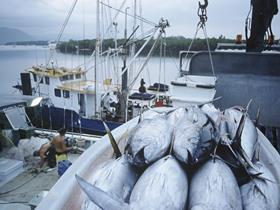
Fisheries Bill
This bill will enable the UK to control access to its waters and set its own fishing quotas after leaving the EU to “ensure prosperity for a new generation of fishermen, as well as preserving and increasing fish stocks.”
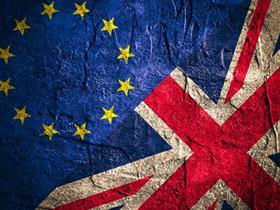
Repeal Bill
The bill promises a “smooth and orderly transition” as the UK repeals the European Communities Act and leaves the European Union. To “maximise certainty” for individuals and businesses, the bill states that wherever practical the same rules and laws will apply after Brexit.
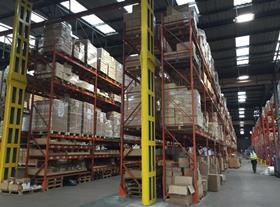
Trade Bill
To implement an independent trade policy, the bill will put a legislative framework in place to allow the UK which “reflects the needs and potential of businesses and consumers throughout the UK” and ensure businesses are protected from unfair trading practices.








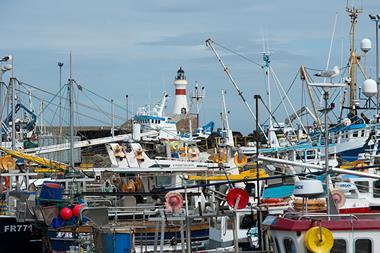

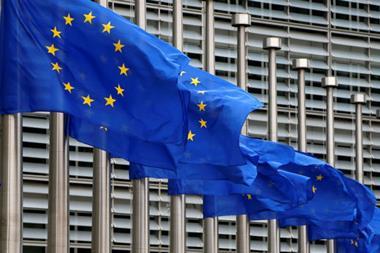
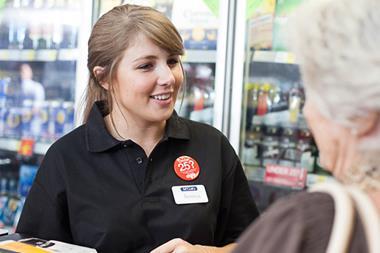
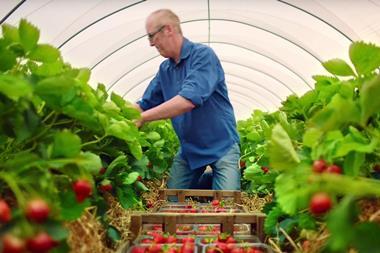






No comments yet